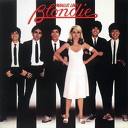This month I’ve entered my serious transition from CDs to iTunes. I figure I have about half of my physical library imported at this point, including the vast majority of my favorite stuff. Since I’m a latecomer to this, and an avid album-listener, things of note include:
- My iTunes likes Lincoln, NE “instrumetal” band Mr. 1986 waaay more than my ratings would seem to indicate. Likewise with indie rockers Grandaddy, and British electronic group Faithless. The Clash seem to pop up often, too, which I’m not complaining about.
- You may not know that there’s an undocumented but super-handy organizational feature. As you’re browsing your library, click the “Album” header for two additional options: “Album by year” (my choice!) or “Album by artist.”
- Hip-hop makes up a significantly smaller portion of my library than I expected. My explanation is that there’s less hip-hop in my older music, and that I return to my favorites more often than I do with other genres.
Oh! Essential; I’m practicing a strict no-earbuds discipline. One thing that bums me out about iPods is the privitization of musical experience. So my iTunes is plugged in to my stereo, and my iPod always goes into the radio or computer speakers. These are remarkable tools to *facilitate* the sharing of music, not inhibit it, and I’m determined to make the most of that possibility.
- I’ve split my jazz into the genres “Jazz” (everything up to bebop) and “Jazz – Bop & post-” (which is, naturally, bop and everything after it). Roughly, that means the former is jazz that functions as dance music, while the latter is art jazz. I tried to split the first category into New Orleans style and big band/swing, but that line was too fuzzy to be meaningful within my limited library.
- Speaking of genres, “Alternative & Punk” is an absolute joke. It’s so ubiquitous as to be meaningless. I respect bands that have the guts to say they’re “Metal” or “Rock” or just straight-up “Punk.” I’m really trying to carve up my library into 10-20 roughly similarly sized genres, not to try to box artists in, but to help create useful smart playlists and mixes for different situations.
Happy holidays; we’re working on XMAS 2k8 as you read. -h










